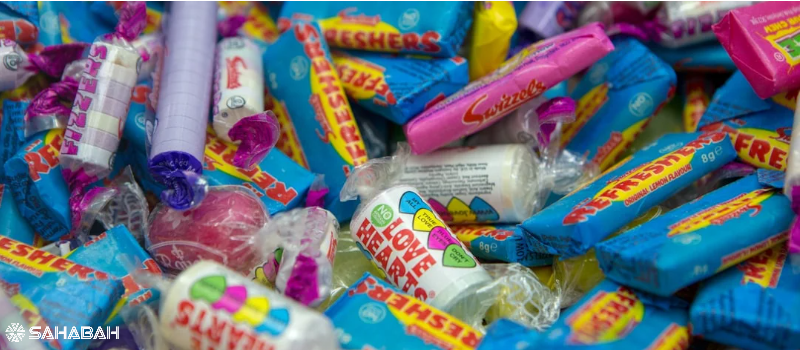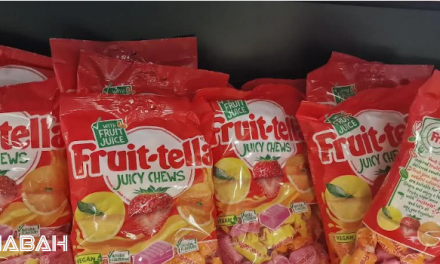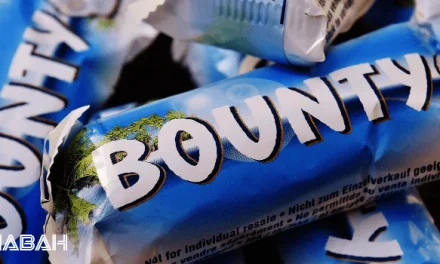What are Refreshers?
Refreshers are a popular chilled sweets made by the British confectionery company Swizzels. These chewy, fruity sweets come in various flavors, including strawberry, lemon, and lemonade. Refreshers are often enjoyed as a refreshing treat, particularly during warm weather.
The iconic Refreshers chew bars consist of a chewy, fruit-flavored center coated in a thin, crunchy sugar shell. They are available in various packaging options, from individual bars to multipacks, making them a convenient on-the-go snack.
Understanding Halal and Haram
For millions of Muslims worldwide, adhering to halal dietary guidelines is an integral part of their faith and lifestyle. The terms “halal” and “haram” refer to what is permissible and impermissible, respectively, according to Islamic laws. Consuming halal foods and beverages is not just a dietary preference but a religious obligation for devout Muslims.
The halal certification process ensures that products meet specific criteria and do not contain any ingredients or additives derived from prohibited sources, such as pork or alcohol. This certification provides Muslims with peace of mind and assurance that the items they consume align with their religious beliefs.
Halal Certification of Refreshers
One of the primary concerns regarding the halal status of Refreshers is whether they are officially halal-certified or not. Unfortunately, Swizzels does not currently hold a halal certification for their Refreshers products. However, this does not necessarily mean that the ingredients used in Refreshers are inherently non-halal.
To determine the halal status of Refreshers, it’s crucial to examine the ingredient list closely. Some of the key ingredients found in Refreshers include:
- Sugar
- Glucose syrup
- Palm kernel
- Acidity regulator (citric acid)
- Stearic acid
- Modified starch
- Lysed soya protein
- Glycerol mono stearate
- Anti-caking agent (magnesium carbonate, magnesium stearate)
While most of these ingredients are plant-based and generally considered halal, there may be some concerns surrounding the source and manufacturing process of certain components, such as stearic acid and lysed soya protein.
Controversy and Debates Surrounding Refreshers’ Halal Status
The halal status of Refreshers has been a subject of debate and differing opinions among Islamic scholars and authorities. Some schools of thought consider Refreshers permissible for consumption, while others advise caution or deem them haram due to the potential presence of non-halal ingredients or processes.
Regional interpretations and cultural differences also play a role in this debate. In some countries or communities, Refreshers are widely accepted as halal, while in others, they may be viewed as questionable or even prohibited.
Consumer opinions and experiences further add to the complexity of this issue. Some Muslims have reported consuming Refreshers without any concerns, while others have chosen to avoid them out of an abundance of caution.
Additives and Preservatives in Refreshers
One aspect that has raised concerns regarding the halal status of Refreshers is the presence of certain additives and preservatives. While the specific additives used may vary across different variants, it’s essential to examine their sources and manufacturing processes.
For example, some additives like stearic acid and glycerol mono stearate can potentially be derived from animal sources, which would render them non-halal. However, if these ingredients are obtained from plant-based sources, they may be considered halal by some interpretations.
Vegetarian and Vegan Refreshers
For vegetarian and vegan Muslims, the halal status of Refreshers becomes even more complex. While the base ingredients in Refreshers may be plant-based, there is a possibility that certain additives or processing aids used could be of animal origin, rendering the product non-vegetarian or non-vegan.
It’s crucial for consumers to carefully examine the ingredient lists and seek clarification from the manufacturer regarding the sources of specific components to make an informed decision.
Making an Informed Choice
When it comes to determining the halal status of Refreshers, it ultimately comes down to personal choice and individual interpretations of Islamic dietary laws. Here are some tips to help you make an informed decision:
-
Read Labels Carefully: Always thoroughly read the ingredient lists on Refreshers packaging to identify any potential non-halal components.
-
Research Ingredients: Take the time to research the sources and manufacturing processes of specific ingredients that raise concerns, such as stearic acid or lysed soya protein.
-
Consider Cultural and Regional Differences: Be aware that halal interpretations may vary across different regions and cultural contexts. What is considered halal in one community may not be viewed the same way in another.
-
Seek Guidance: If you are unsure about the halal status of Refreshers or any specific ingredient, it’s advisable to consult with Islamic scholars or authorities in your local community for guidance.
-
Make a Personal Choice: Ultimately, the decision to consume Refreshers or not will depend on your personal beliefs, interpretations, and level of comfort with the available information.
Conclusion
The halal status of Refreshers remains a complex and debated topic within the Muslim community. While the ingredients used in Refreshers may not inherently violate halal principles, the potential presence of non-halal components or processes raises concerns for some consumers.
Ultimately, it is up to each individual Muslim to carefully examine the available information, seek guidance from trusted sources, and make an informed decision that aligns with their personal beliefs and interpretations of Islamic dietary laws.
Whether you choose to consume Refreshers or opt for alternative halal-certified sweets, the key is to prioritize your religious values and make choices that provide you with peace of mind and adherence to your faith.
Remember, the journey towards a halal lifestyle is a personal one, and it is essential to approach such matters with an open mind, respect for different perspectives, and a commitment to upholding the principles of Islam.
Frequently Asked Questions: Are Refreshers Halal?
Yes, Refreshers are considered halal. They do not contain any haram ingredients.
What ingredients are used in Refreshers?
Refreshers typically contain ingredients like sugar, glucose syrup, vegetable oil, citric acid, and flavorings.
Is Refreshers suitable for a halal diet?
Refreshers can be included in a halal diet as they are generally made using halal ingredients.
How can I find out if Refreshers are suitable for me?
You can refer to the packaging of the product for information on whether Refreshers meet your dietary requirements.
Where can I find the nutritional information for Refreshers?
The nutritional values of Refreshers can usually be found on the packaging or the official website of the manufacturer.
Who makes Refreshers?
Refreshers are made by Swizzels, a well-known confectionery company.
Are there any allergens in Refreshers?
Refreshers may contain allergens like gluten or soy, so it’s important to check the packaging for allergen information.
Can I get the latest news on Refreshers?
For the latest news and updates on Refreshers, you can visit the Swizzels website or follow their social media channels.





